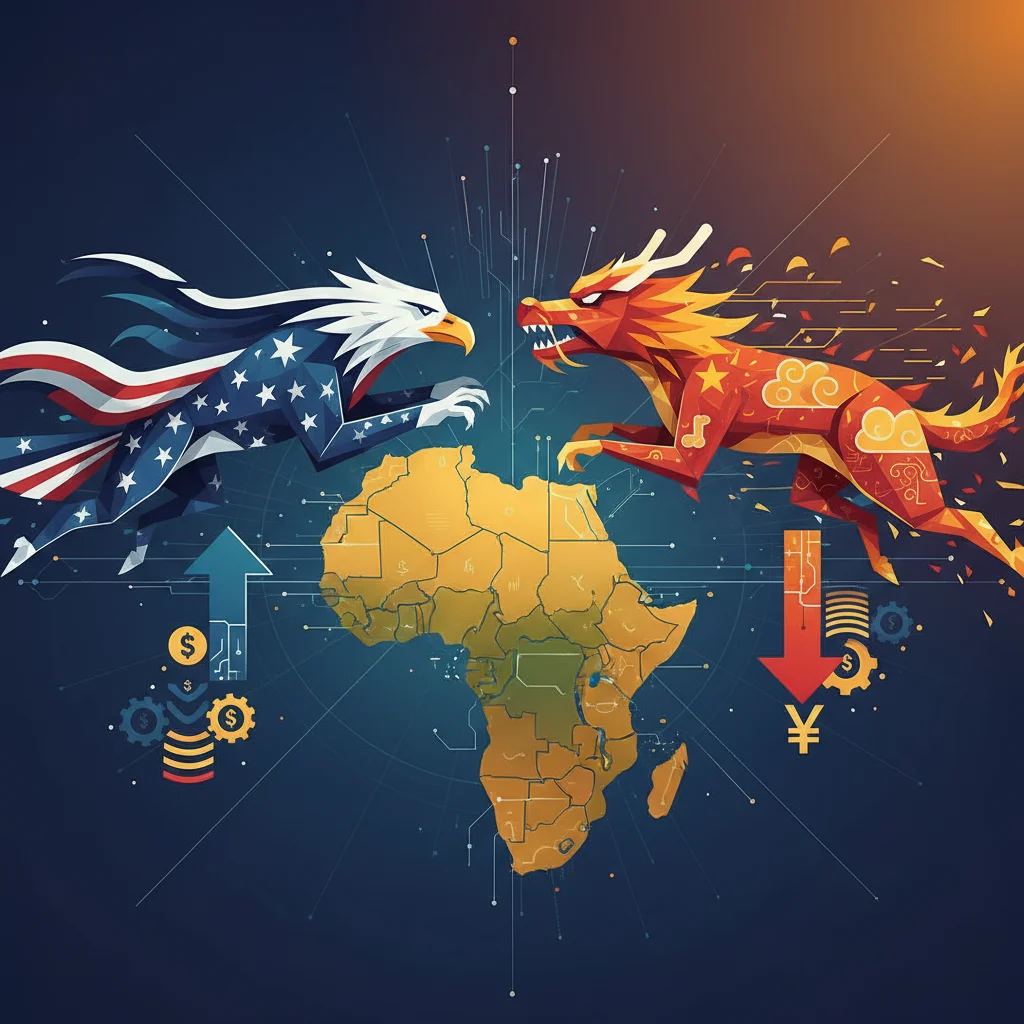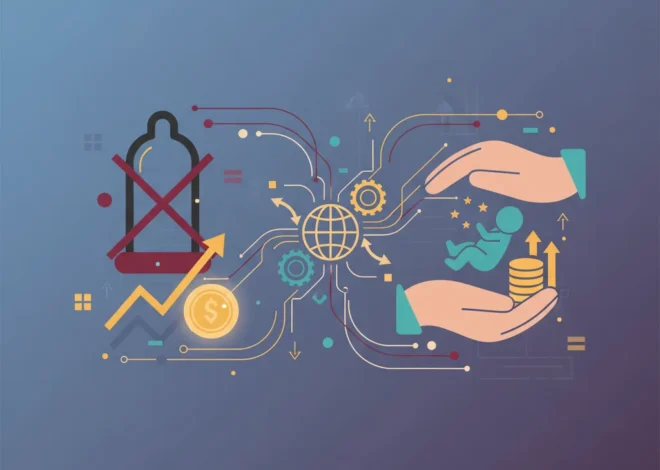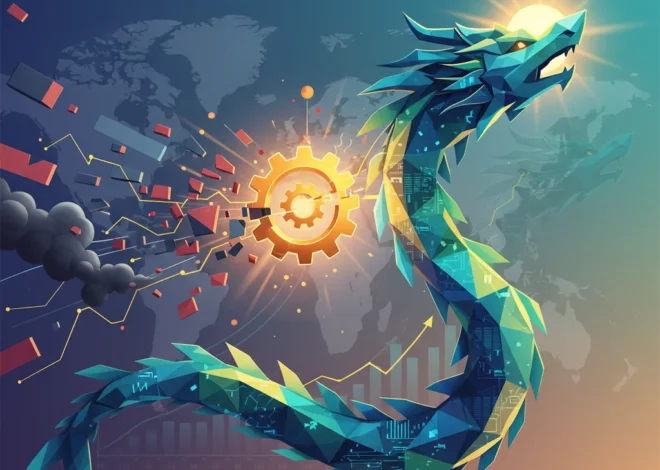
The New Scramble for Africa: Why the US Just Dethroned China in a High-Stakes Investment Race
A Seismic Shift in Global Investment: The US Reclaims its Throne in Africa
In the grand theater of global economics, the spotlight has dramatically shifted. For the better part of a decade, China’s economic influence across Africa seemed an unstoppable force, symbolized by its sprawling Belt and Road Initiative. But the narrative has taken a sharp turn. In a stunning reversal, the United States has surged ahead, reclaiming its position as the largest foreign direct investor in Africa. This isn’t merely a statistical footnote; it’s a profound indicator of a new chapter in global geopolitics, resource competition, and the future of the African economy.
This development, highlighted by recent data from fDi Markets, signals more than just a change in capital flows. It reflects a strategic recalibration by the world’s two largest economies, driven by the urgent global demand for critical minerals essential for the green energy transition. As the world pivots towards electric vehicles and renewable energy, the competition for Africa’s vast resources—and its burgeoning consumer markets—has intensified, reshaping the landscape of international finance and investing.
In this deep dive, we will unpack the numbers behind this monumental shift, explore the multifaceted forces driving this new investment race, and analyze the profound implications for investors, business leaders, and the global economic order.
The Great Reversal: A Data-Driven Look at the US-China FDI Showdown
For years, the story of foreign investment in Africa was dominated by China’s state-backed projects. However, the latest figures paint a starkly different picture. The US, primarily through its dynamic private sector, has not only closed the gap but has decisively pulled ahead.
To understand the scale of this change, let’s examine the capital expenditure on foreign direct investment (FDI) projects announced in Africa. While China’s investment has seen a decline, US-backed projects have surged, particularly in high-value sectors.
The following table illustrates the shifting dynamics of capital investment from the two superpowers into Africa, based on announced FDI projects.
| Investing Nation | Recent Investment Trend | Primary Investment Focus | Key Investment Model |
|---|---|---|---|
| United States | Significant Increase | Energy (especially renewables), Technology (Fintech), Critical Minerals | Private Sector-Led, Venture Capital, Corporate Expansion |
| China | Noticeable Decrease | Traditional Infrastructure (Roads, Rails), Construction, Mining | State-Led, Government Loans (Belt and Road Initiative) |
According to the data, a significant portion of the new US investment is targeting the energy sector, with an emphasis on renewables. This aligns with the global push for decarbonization and highlights a strategic pivot towards future-proofing supply chains. For instance, American firms have pledged billions in projects ranging from solar farms in North Africa to battery mineral extraction in the Democratic Republic of Congo (source).
Grounded Ambitions: Why UK Aviation Taxes Could Stall Economic Takeoff
Why Now? The Catalysts Behind America’s Renewed Economic Push
This reversal wasn’t accidental; it’s the result of a confluence of powerful economic and geopolitical forces. Understanding these drivers is key to grasping the long-term implications for the global economy.
1. The Global Gold Rush for Green Minerals
The 21st-century economy runs on minerals like cobalt, lithium, copper, and manganese. They are the lifeblood of electric vehicle batteries, wind turbines, and advanced electronics. Africa holds a significant share of the world’s reserves of these critical materials. The Democratic Republic of Congo alone produces over 70% of the world’s cobalt. As the US and its allies seek to de-risk their supply chains and reduce dependence on China, investing directly in African mining and processing has become a national security and economic imperative. This strategic approach to investing is reshaping international trading routes and partnerships.
2. China’s Evolving “Belt and Road” Strategy
China’s Belt and Road Initiative (BRI) has undeniably transformed infrastructure across Africa. However, the strategy is evolving. Facing its own domestic economic headwinds and growing international scrutiny over “debt-trap diplomacy,” Beijing appears to be becoming more selective with its large-scale lending. While China remains a colossal economic partner for Africa, the era of blank-check infrastructure spending may be waning, creating an opening for other players. This shift in Chinese economics has created a vacuum that US private capital is now eagerly filling.
3. A Conscious US Policy Pivot
The US government has actively encouraged private sector investment in Africa as a cornerstone of its foreign policy. Initiatives like “Prosper Africa” aim to connect American businesses with African opportunities, framing investment not just as aid, but as a mutually beneficial partnership. This approach leverages America’s greatest strength: its innovative and deep-pocketed private sector. The focus is on high-growth areas like financial technology, healthcare, and renewable energy, where US firms can provide not just capital, but also world-class expertise and technology transfer.
Beyond Minerals: The Diversifying African Investment Portfolio
While the scramble for critical minerals grabs headlines, it’s only part of the story. The investment landscape in Africa is becoming increasingly sophisticated and diverse, reflecting the continent’s dynamic internal growth.
The African Fintech Revolution
Africa is a global leader in mobile money and digital finance. With a young, tech-savvy population and high mobile penetration, the continent has become a fertile ground for fintech innovation. US venture capital firms have taken notice, pouring billions into startups across Nigeria, Kenya, South Africa, and Egypt. These companies are revolutionizing everything from payments and lending to insurance and investing, creating high-value jobs and driving financial inclusion. This boom in financial technology is creating new avenues for both retail and institutional investors to participate in Africa’s growth story, far beyond the traditional stock market.
Powering a Continent: Energy and Digital Infrastructure
Africa’s energy needs are immense, and US firms are at the forefront of developing solutions. Investment is flowing into large-scale solar, wind, and geothermal projects. Simultaneously, the demand for data is exploding. This has fueled a construction boom in data centers, subsea cables, and telecommunications towers, forming the backbone of the continent’s digital economy. These infrastructure plays are long-term investments in the continent’s fundamental growth trajectory.
The Investor's Gambit: Why Solving a Crossword is Like Mastering the Stock Market
The African Perspective: A Partner, Not a Pawn
It is a profound mistake to view Africa as a passive chessboard for geopolitical competition. The continent’s 54 nations are active agents in their own development, strategically engaging with global partners to achieve their goals. African leaders are increasingly sophisticated in negotiating deals that prioritize local job creation, technology transfer, and sustainable development.
The choice between a US or Chinese investment model is not always clear-cut. China’s state-led model can deliver massive infrastructure projects quickly, which is often appealing to governments facing urgent development needs. However, the US private-sector model, while sometimes more complex to navigate, can bring cutting-edge technology, corporate governance standards, and integration into global markets. Increasingly, African nations are seeking a hybrid approach, taking the best of what all partners have to offer while avoiding over-reliance on any single nation. This pragmatism is a sign of the continent’s growing confidence and influence on the world stage.
What This Means for Investors and the Global Economy
This tectonic shift in investment flows carries significant implications for anyone involved in international finance, trading, and economics.
For investors, the message is clear: Africa is a continent of immense opportunity that can no longer be overlooked. The growth in sectors like fintech, renewable energy, and agribusiness presents compelling long-term prospects. While direct investment can be complex, opportunities exist through publicly traded companies with significant African operations, specialized ETFs, and private equity funds. The key is to conduct thorough due diligence and partner with local experts who understand the nuances of each market.
For the global economy, this intensified competition will have far-reaching consequences. It could lead to more resilient and diversified supply chains for critical minerals, reducing global vulnerability to disruptions. However, it could also increase price volatility in the short term as the race for resources heats up. The future of global banking and finance will be influenced by how capital is deployed in these emerging markets, with financial technology playing a pivotal role in shaping the efficiency and inclusivity of these investments.
The 500-Year Portfolio: What a Tudor Mansion Teaches Us About Modern Investing
Conclusion: A New Economic Era for Africa
The United States’ re-emergence as Africa’s top foreign investor is a landmark event that signals the dawn of a new economic era. Driven by the twin engines of the green energy transition and a strategic geopolitical pivot, this new wave of capital is more diverse and dynamic than ever before. It extends beyond traditional extraction into the high-growth realms of technology, finance, and sustainable energy.
This is not simply a story of a US-China rivalry. It is the story of an increasingly assertive and opportunity-rich Africa leveraging global interest to fuel its own transformation. For savvy investors, forward-thinking businesses, and policymakers, the message is undeniable: the economic future is being forged in Africa, and the race to be a part of it has just begun.


